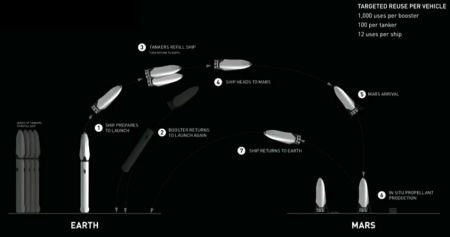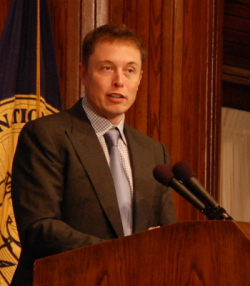Another NASA authorization bill this year?
Less than a day after President Trump signed the first NASA authorization bill since 2010, it appears that two major players, one in industry and one in Congress, would like to revisit this bill again this year.
- Elon Musk doesn’t think Trump’s new NASA law will help SpaceX get to Mars
- Cruz plans new NASA authorization and commercial launch bills
The first story summarizes and quotes from a series of tweets sent out by Elon Musk reacting to the bill, of which the most important noted ““changes almost nothing about what NASA is doing. Existing programs stay in place and there is no added funding for Mars,” and adding, “Perhaps there will be some future bill that makes a difference for Mars, but this is not it.”
The second story describes comments made by Cruz at a Commercial Spaceflight Federation breakfast on March 22, where he noted that in 2017 Cruz hoped to do it all over again, with a different focus: “In this coming Congress, I hope to take up another commercial space launch piece of legislation, and a longer-term NASA authorization.”
I suspect that both want and expect some changes in how NASA has been doing things, and the just-signed authorization did not accomplish that. The bill was written last year, as Cruz also noted in his remarks, and thus could not reflect any policy changes we can expect from Trump. I also suspect that both Musk and Cruz want to influence that policy, which is not yet determined. I am hoping that Capitalism in Space, which their offices have both received, is having some of its own influence here, even if it is tiny.
Less than a day after President Trump signed the first NASA authorization bill since 2010, it appears that two major players, one in industry and one in Congress, would like to revisit this bill again this year.
- Elon Musk doesn’t think Trump’s new NASA law will help SpaceX get to Mars
- Cruz plans new NASA authorization and commercial launch bills
The first story summarizes and quotes from a series of tweets sent out by Elon Musk reacting to the bill, of which the most important noted ““changes almost nothing about what NASA is doing. Existing programs stay in place and there is no added funding for Mars,” and adding, “Perhaps there will be some future bill that makes a difference for Mars, but this is not it.”
The second story describes comments made by Cruz at a Commercial Spaceflight Federation breakfast on March 22, where he noted that in 2017 Cruz hoped to do it all over again, with a different focus: “In this coming Congress, I hope to take up another commercial space launch piece of legislation, and a longer-term NASA authorization.”
I suspect that both want and expect some changes in how NASA has been doing things, and the just-signed authorization did not accomplish that. The bill was written last year, as Cruz also noted in his remarks, and thus could not reflect any policy changes we can expect from Trump. I also suspect that both Musk and Cruz want to influence that policy, which is not yet determined. I am hoping that Capitalism in Space, which their offices have both received, is having some of its own influence here, even if it is tiny.


